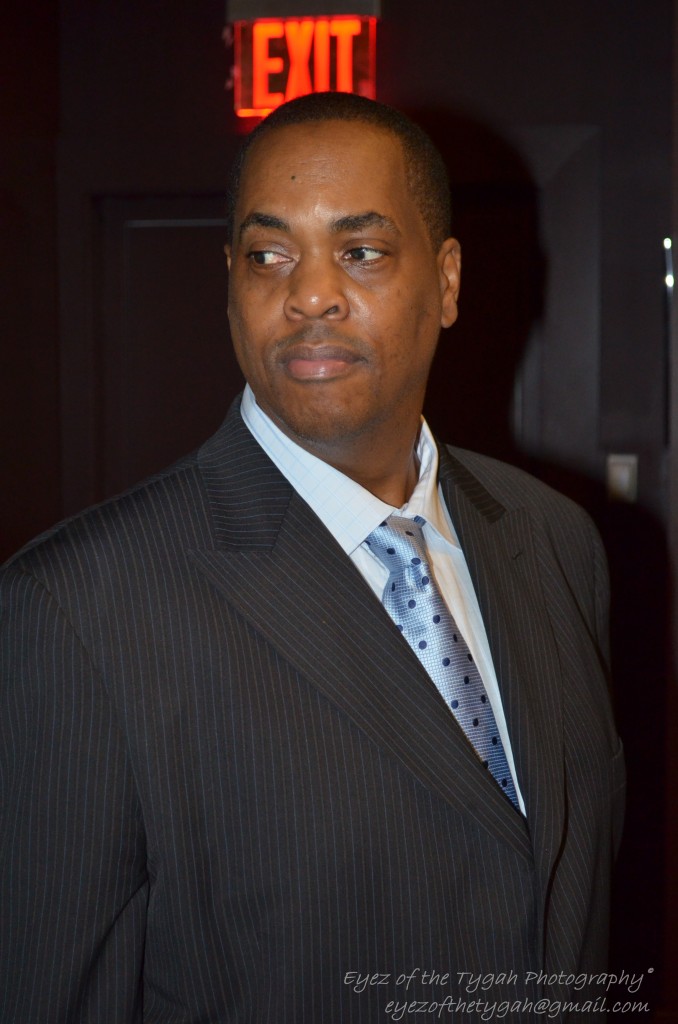By: Yasleen Trinidad
Co founder of Silicon Harlem, Clayton Banks’ journey towards success falls on following his passion.
“I believe everyone is born equal,” states Banks.
With his father serving as a Marine, Banks grew up in a military base and was exposed to an in-closed world of economic and social equality where everyone on the base was within the same rank and pay rate. He recalls the kids in the neighborhood all riding the same bicycles, wearing the same sneakers, and having the same toys. It wasn’t until Banks got to college that he saw the differences in the socio-economic classes.
According to Banks, because of his upbringing, it’s his, “ frame of reference to life…everyone’s equal and everyone has potential. It’s about having the access to apply yourself, no matter your economic situation.”
Graduating a double major in Communications and Business Administration from California State University of Fulton, Banks knew he was meant to be an entrepreneur, but was also aware that he needed to work in corporate first. So, he set out to work in what he loved, movies, video games, and comedy.
His first job was working for Showtime; one of the most popular American premium cable networks to-date, even landing an executive position.
“I was blown away that I working with a company that does movies. I love movies and was getting paid to do it,” describes Banks.
His next job? Getting the opportunity to work alongside Sega Channel creator and CEO, Stan Thomas. This gave Banks the chance to develop and work on his second love, video games.
Although leaving an executive position at an established company was risky, Banks states, “It was too fascinating of an opportunity to turn it down.”
The online video game service went on to become the first all digital network in the history of television, even winning Popular Science’s, “Best of What’s New” award in 1994. But although reaching great success, due to the rise of the internet and lack of advancement, the Sega Channel was discontinued by 1998.
Shifting his focus in a new direction, he went after his love for comedy and began a career in Comedy Central.
“Here I was in Showtime loving movies, then at Sega Channel for my passion of video games, and then BOOM! I love comedy and i’m at Comedy Central!,” states Banks.
Within a few weeks into the job, he was handed the script to the show that would eventually put Comedy Central on the map, South Park.
According to Banks, when he got there, Comedy Central had about 50% of penetration in the country. It wasn’t until the launch of South Park that the network was able to reach 100% of penetration within six months.
“It was a phenomenal experience getting to watch how one show can turn an entire network around,” states Banks.
After reaching corporate success and having met his passion for movies, video games, and comedy, Banks went after a new found love, technology. But this time, by launching his own company, Ember Media.
Focusing on technology, specifically multimedia across multi platforms, his company began developing interactive, online marketing tools for companies. Notably helping HBO’s The Sopranos launch on CD-ROM and having clients such as former president, Bill Clinton. It wasn’t too soon before Banks began to realize how technology was going to impact the industry.
“Having worked in Sega Channel in 1994 before the internet was commercialized. I saw where the world was headed… I knew the power and wanted to share it with those who couldn’t get access,” said Banks.
Thus came the birth of Silicon Harlem, a social venture that is designed to bring innovation and technology to the streets of Harlem.
Being a Harlem resident, Banks wanted to ensure that technology and innovation were being presented in urban markets, where he believed there was opportunity. But, after failing to win a $20 million dollar bid from the National Broadband Fund, Silicon Harlem was put on hold.
It didn’t stop Banks from finding out the latest in the tech industry. After going to several meetups in Downtown and Brooklyn, it was time to get the conversation going in Uptown. In 2013, Banks and his companions decided to put together a meet-up in Harlem and to their surprise, 500 people showed.
Banks states, “That’s when I knew I wasn’t the only geek Uptown, I realized that there are other people who care about technology and innovation.”

Since then, he has held monthly events with constantly huge turnouts. It shows that the community is ready and engaged to put in real initiative that can move the community economically forward.
With the power of New York City’s dense market in terms of technology and having Wall Street, the investment capital of the world within the city, at their fingertips, Banks believes Silicon Harlem has the potential to become Silicon Valley. Within just three years since it took effect, seven coworking spaces, incubators, and several internet cafes opened.
From the perspective of the City of New York, Silicon Harlem is recognized as a major movement for Uptown technology and innovation for creating jobs, opportunities, and getting capital to startup companies and organizations.
So what comes after technology for Mr. Banks?
“Community…This latest chapter in my life has been, “How do you get the most out of your community so that people feel there is an economic engine that is sustainable to keep the community running?,” Banks continues, “The 21st century is telling us that technology is that sustainable engine.”

